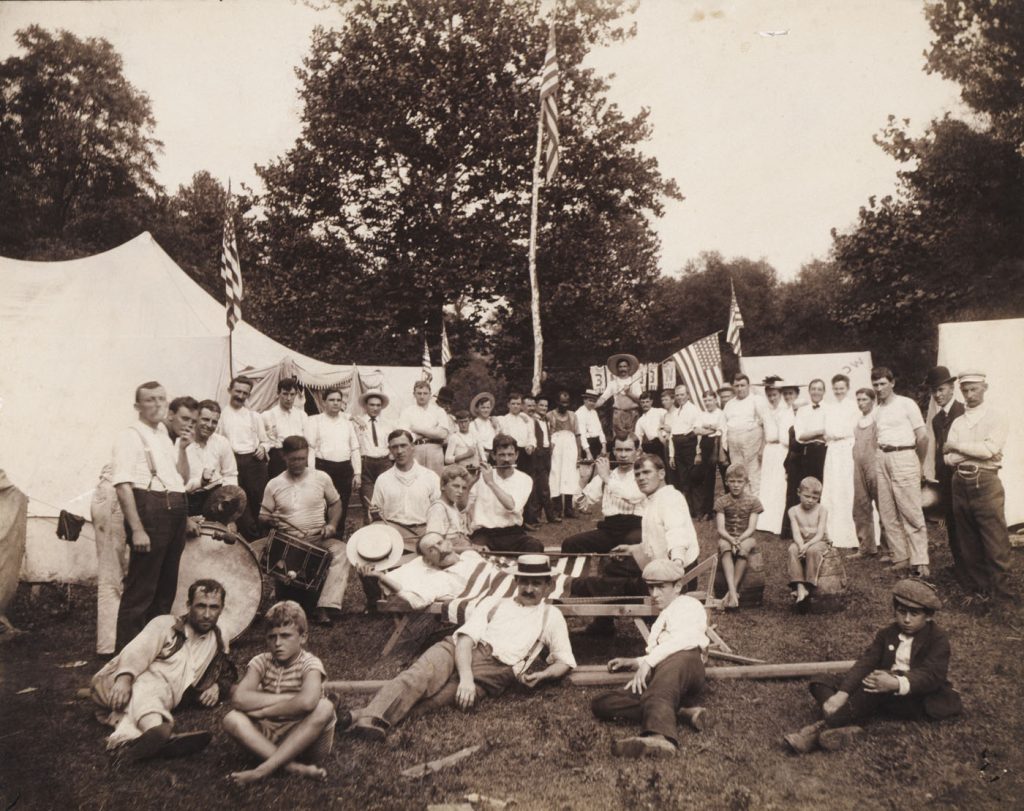When I was seven years old, the INS raided the canyon behind my childhood home in San Diego. I remember how they pulled up onto our driveway and men emerged in uniforms with large guns. As I stood holding my jump rope next to our basset hound, Cookie, I felt scared and perplexed. The undocumented, transient workers lived in the canyon and worked in the nearby tomato fields. Sometimes my sister and I would roam the canyon, passing by discarded Coca-Cola cans and dirty blankets. The workers never bothered us and I never perceived them as a threat. Yet here the INS was arresting them, and there I was — a privileged white American — standing by, not doing or saying anything. Later that day, I recorded the incident in a heart-emblazoned diary with a faux gold lock and key that is now in a cardboard box with soccer trophies and childhood photographs in San Diego.
With a nexus of military bases — Camp Pendleton to the North, the Naval base to the West, and the Air Force base to the East, San Diego is a military city. I myself come from a Naval engineer father, who served during the Cuban Missile Crisis, and for whom his military service paid for college. I also come from a line of Republicans; I’m one of the lone Democrats in my family. Like other politically divided families, this week was particularly tough and filled with tension.
Yesterday I finally emailed my father, writing: “I just want to say that I know we have very different political opinions, but I love you nonetheless.” When I had spoken with him briefly on Wednesday morning — me in Manhattan, him in San Diego — he tried to assure me, in a tone that sounded upbeat, that politics sway left then right, but that life goes on. I responded that I wasn’t sure about that, because I was feeling devastated. It felt Herculean to even get out of bed, let alone go into work — and I know many others who felt and still feel similarly. On Election night around 11:30 PM, I emailed my therapist: “I am despondent. Is this really happening?”
It was. It is.
Kubbler-Ross’s stages of grief come to mind. So do the words blind-sighted and gut-wrenching loss. And I say this as someone who lost my mother to complications from cancer fifteen years ago at the age of twenty-one, as someone who remembers 9/11, as someone who was laid off from a well-paying job in early 2009 during the Recession. Perhaps I sound dramatic, but I want to make it clear that I know what I am saying when I say I understand devastation.
On Thursday, I attended my graduate school class. We began with a free write, in which I wrote about how I was having a hard time focusing, and how I felt both emotionally hungover yet also emotionally charged, the two pulling at each other in opposite directions. I was exhausted and feeling depleted.
What transpired was a four hour evening of processing emotions — exchanging stories on upbringing, discussing how students we teach or coach are faring, especially the concerns of those who are undocumented and minorities, and perhaps most importantly, a discussion on how we misread and underestimated the narratives of Trump supporters and Trump himself. As one peer of mine pointed out, Trump’s campaign message was a refrain that bastion of angry voters could latch onto — and so they did. As another peer of mine commented, it appears that we “liberal elites” live in an echo chamber—and we do.
Yesterday I read several articles and blog posts and Tweets that spoke of taking action, mustering the courage to fight and not sitting by silently. As I write this, I am sitting on my bed in pajamas at 2:30 in the afternoon; I am not at a protest. I am ignoring my messy apartment and graduate school thesis, trying to channel my energy into imagining what reaching across the aisle really looks like. For me, it started with emailing my father yesterday, which was not easy to do, as much as I love him. To hear the narratives of those celebrating Trump’s win is what I also need, but as the adage goes, it’s much easier in thought than in reality. And yet I want to hear the narratives because I need to understand what drives them, because I am hearing a lot of broad, dominant narratives about the bastion of his supporters — but I surmise there are some counternarratives in there.
I need to hear them to gain a sense of equanimity somehow. I need to hear them because I haven’t been listening; because I’ve been rolling my eyes and mocking them; because my New York Times-NPR-Huffington Post trifecta of news sources is only punctuated when my dad picks me up from the San Diego airport and we listen to his AM conservative news station — to which I often seethe at and cringe. I need to hear the counternarratives to chart a course of action, one that doesn’t entail moving to Canada. I need to hear them because I, unlike undocumented immigrants, am a white privileged American who doesn’t have to live in a canyon and worry about being picked up by the INS and deported, who doesn’t have to worry about racial or ethnic or religious discrimination. I need to hear them because I want my beloved niece to grow up in a better world than the one I personally feel exists at this moment. So, let it begin with me.
*
Image: Dickinson, E.E. “Group Portrait at a Patriotic Celebration.” Ca. 1915. Gelatin silver print. Smithsonian American Art Museum, Washington, D.C.
Catherine Hull is a graduate student in the English Education program at Teachers College, Columbia University. She received her MFA in Nonfiction Writing from Sarah Lawrence College and is currently working on a collection of essays.




